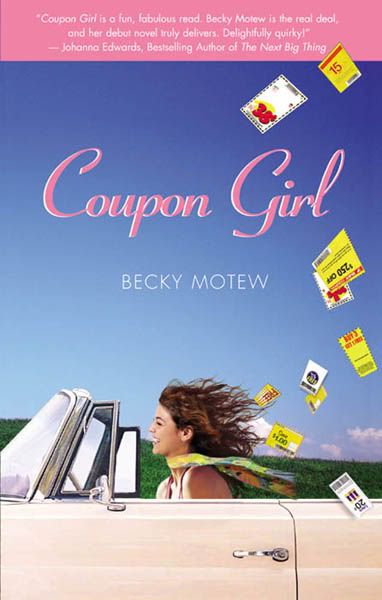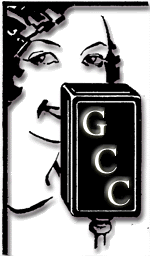"Hear how the birds, on ev'ry blooming spray, With joyous musick wake the dawning day." ~Alexander Pope
I am thrilled to host Gayle Brandeis on the blog today. A wonderful writer and incredibly kind individual, Gayle was an early and enthusiastic supporter of The Bitch Posse. In addition to Gayle's novels, she also has an awesome book on writing titled Fruitflesh that sits proudly next to Anne Lamott's Bird by Bird on my bookcase. Check it out for some delicious inspiration!
Today I'm presenting Gayle's novel, The Book of Dead Birds, now in paperback, as part of The Girlfriends Cyber Circuit Virtual Book Tour. Poignant and memorable, this is a beautiful work of literary fiction of the highest caliber. And don't take my word for it... Barbara Kingsolver, Toni Morrison, and Maxine Hong Kingston agreed, awarding The Book of Dead Birds Kingsolver's Bellwether Prize.
ABOUT THE BOOK
Ava Sing Lo has been accidentally killing her mother's birds since she was a little girl. Now in her twenties, Ava leaves her native San Diego for the Salton Sea, where she volunteers to help environmental activists save thousands of birds poisoned by agricultural runoff.
Helen, her mother, has been haunted by her past for decades. As a young girl in Korea, Helen was drawn into prostitution on a segregated American army base. Several brutal years passed before a young white American soldier married her and brought her to California. When she gave birth to a black baby, her new husband quickly abandoned her, and she was left to fend for herself and her daughter in a foreign country.
With great beauty and lyricism, The Book of Dead Birds captures a young woman's struggle to come to terms with her mother's terrible past while she searches for her own place in the world.
The Book of Dead Birds won Barbara Kingsolver's Bellwether Prize for Fiction. Barbara Kingsolver created the award to advocate serious literary fiction that addresses issues of social justice, and the impact of culture and politics on human relationships. Toni Morrison and Maxine Hong Kingston were the judges who, in addition to Barbara Kingsolver, selected The Book of Dead Birds.
PRAISE
Lyrical, imaginative, beautifully crafted, and deeply intelligent. Before anything else, its characters take you by the heart.
--Barbara Kingsolver
The Book of Dead Birds has an edgy beauty that enhances perfectly the seriousness of its contents.
--Toni Morrison
A moving and perceptive first novel.
--O Magazine
The vivid tale of a woman learning to save and cherish life.
--San Francisco Chronicle
A uniquely inventive novel…How splendidly the author has balanced art with environmental obligation…It is exciting in literary circles when a first-time novelist does as well as Brandeis does with The Book of Dead Birds.
--Rocky Mountain News
Brandeis has a poet's ear for the music of language…[her] characters and their fledgling flights of the heart stay with readers long after the book is closed and set aside.
--January Magazine
Captivating…A poignant and wonderful novel.
--Dallas Morning News
Intricate and elegant…[Brandeis] mines universal human experiences, not the least of which is the need to get beyond the heartbreak of the past to create a livable future.
--Denver Post
Gathers power and momentum to wind up both mysterious and spiritual.
--Milwaukee Journal Sentinel
BIO
In addition to The Book of Dead Birds, Gayle Brandeis is the author of Fruitflesh: Seeds of Inspiration for Women Who Write (HarperSanFrancisco) and Dictionary Poems (Pudding House Publications). Both Fruitflesh and The Book of Dead Birds were chosen as selections for the BookSense list, compiled by the American Booksellers Association. Her second novel, Self Storage, will be published by Ballantine in 2007.
Gayle's poetry, fiction and essays have appeared in numerous magazines and anthologies (such as Salon.com, Nerve.com, The Mississippi Review, and McSweeney's Internet Tendency) and have received several awards, including the QPB/Story Magazine Short Story Award, a Barbara Mandigo Kelley Peace Poetry Award, and a grant from the Barbara Deming Memorial Fund. Her essay on the meaning of liberty was one of three included in the Statue of Liberty's Centennial time capsule in 1986. The Writer Magazine honored Gayle with a 2004 Writer Who Makes a Difference Award for her work in the community as well as her commitment to craft.
Gayle holds a BA in "Poetry and Movement: Arts of Expression, Meditation and Healing" from the University of Redlands, and an MFA in Creative Writing/Fiction from Antioch University. She is on the faculty of the UCLA Writers Program, and is writer in residence for the Mission Inn Foundation's Family Voices Project. She lives in Riverside, CA with her husband and two children.
THE INTERVIEW
MO'C: Hello, Gayle, and welcome to the blog.
GB: Thank you for the invitation!
MO'C: Let's start at the beginning; how did you get started writing?
GB: Words have always been a hugely important part of my life; I taught myself to read when I was three and started writing poems when I was four. My memories start at age 4, so I have been writing for as long as I can remember! I was fairly ambitious when I was a kid—I wrote my first "novel" when I was eight (it was only 24 pages, but it felt like a novel to me, and even ended up on the shelves of my school library); I put together a neighborhood newspaper when I was ten and sold subscriptions door to door. Then those self-conscious years hit, and I became very private with my work. I never stopped writing, but it took me a long time to call myself a writer again; it took a long time for me to feel comfortable sending my work out into the world. I wrote mostly poetry for many years, with some non-fiction thrown in, and slowly began to publish work in literary journals and anthologies; then, after my daughter was born, fiction started pouring out of me, and it hasn't stopped since.
MO'C: What gave you the idea for The Book of Dead Birds?
GB: The Book of Dead Birds started out as a poem about a dead bird I saw when I was six (my first direct experience with death.) The poem got longer and stranger, and I realized it didn't want to be a poem any more, and it didn't want to be about me any more, but I had no idea what it wanted to be or who it wanted to be about. That summer, articles began to appear in the paper about the massive bird die-off at the Salton Sea out in the California desert; I clipped the articles, knowing I could tie them into this strange dead bird project, but I had no idea how. Then I happened to see a documentary on PBS , "The Women Outside", about women who had been forced into prostitution on US military bases in Korea, and suddenly my two main characters materialized. I knew from the start that Ava had a nasty habit of killing her mother's pet birds; I knew that Helen had been a prostitute in Korea; I knew that Ava would have to travel to the Salton Sea to help try to save dead birds and maybe make amends with her mother in the process. I knew all of this, but I got very scared—I didn't think I had the right to write this story. I tried to resist the characters at first, but they were incredibly persistent.
MO'C: Did you find it difficult to write from the perspective of a character with such a different background than yourself? What type of research did you do to help you do it effectively?
GB:The most difficult part was convincing myself that I wasn't a horrible cultural imperialist for taking on these characters. I questioned myself at every turn, but my characters kept compelling me to move forward. At first, I wrote Ava's story from the 3 rd person because I thought it was safer—I was just observing Ava; I wasn't claiming to be her. The story felt flat, though. I almost gave up writing the story, but two things convinced me—first, a dead crow appeared on my patio, and that seemed like a sign to keep going. Then, I came down with strep throat and had such a high fever that I had these crazy hallucinatory dreams where I became Ava. After the fever broke, I realized Ava had to tell the story in her own voice.
I did tons of research—the typical venues (internet, library, etc.), but also a lot of hands-on sensory research. I find that when I engage my senses, I can write about things more viscerally, so I ate a lot of Korean food, listened to Korean music, spent time in Koreatown, etc.
MO'C: Any plans for a sequel to the book at some point or another?
GB: I actually wrote a sequel during National Novel Writing Month in 2002, the year before Dead Birds first came out. It was wonderful to spend more time with my characters—it was like an intense, month long, family reunion. I don't know if I'll ever publish the story, but I am very glad that I wrote it. I was so happy to catch up with everyone (although I was sorry to see they had found more complications for themselves!)
MO'C: Tell me, what are Barbara Kingsolver, Toni Morrison, and Maxine Hong Kingston like in person? You got to meet them, didn't you?
GB: I did get to meet them (which makes me feel giddy! I still can barely believe that they have given me their blessing via the Bellwether.) I've gotten to know Barbara quite well; she's incredibly warm and generous, so much fun to be around. I continue to learn so much from her. I only met Toni Morrison briefly; what a regal presence. And Maxine Hong Kingston introduced me at one of my readings, even though she was quite ill that evening. She is a delight; she reminds me of a fairy, with her long white hair. The fact that the three of them read my work at all, much less endorsed it, still gives me little shivers. They are all such idols, such models, for me. True goddesses.
MO'C: Did you have any idea or message you wanted to get across with this book?
GB: As I was writing, I mostly wanted to tell the story; I tried not to have any sort of agenda. I was aware, though, that I wanted to touch upon issues of community and environmental responsibility. I wanted to expose the heartbreak of prostitution on US military bases abroad. And I wanted to look into the heart of the ever-complicated mother-daughter relationship.
MO'C: What is your writing day like? How do you manage to juggle writing around the demands of a family?
GB: I tend to write in bits and pieces throughout the day. I love to write at night, but that isn't always an option, so I try to get work done when the kids are in school. I'm teaching now, too, and I do a lot of work as an activist, so the juggling can get a little complicated. I let a lot of things go—laundry is a biggie. Clothes are patient; they can wait—often for a long, long time--while I deal with more important things, like kids and stories (which are usually not patient at all.)
MO'C: What advice would you have for an aspiring writer?
GB: Keep your senses open. Be true to your voice, your vision. Read widely and deeply. Take creative risks. Learn as much as you can about the publishing world, but don't make the publishing the be-all and end-all of your existence; the writing itself is the most enduring source of pleasure.
To put on my marketing cap for a moment (which doesn't fit my head quite right, but I know I have to wear it every once in awhile)…for further advice, feel free to check out my book, Fruitflesh: Seeds of Inspiration for Women Who Write. {This is Martha butting in... you have to check out this book. I page through it often!}
MO'C: What's next on the agenda for you?
GB: My novel Self Storage will be published by Ballantine in 2007. I will be entering the revision process soon with my editor, and am excited to polish the book before it hits the shelves. I'm also working on a new novel, which will be published by Ballantine a year or two after Self Storage comes out. I'm doing a lot of political work, as well, especially for the group CODEPINK: Women for Peace. It is important to me to find ways to use my voice for good in the world.
Thank you so much, Gayle, for the visit! And don't forget to buy The Book of Dead Birds at
Amazon, Barnes and Noble, or your
local indie bookseller. Visit
Gayle's website, too!











